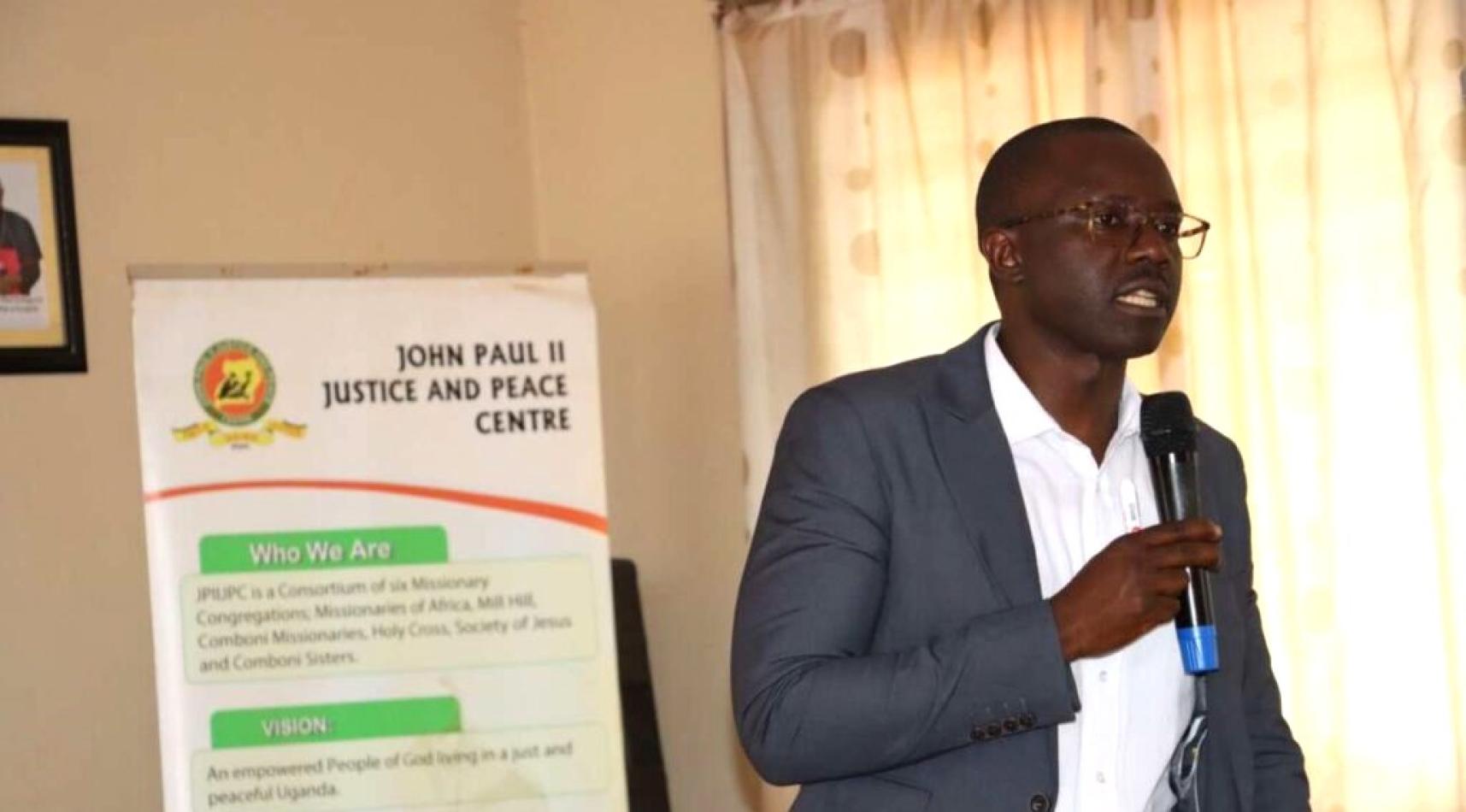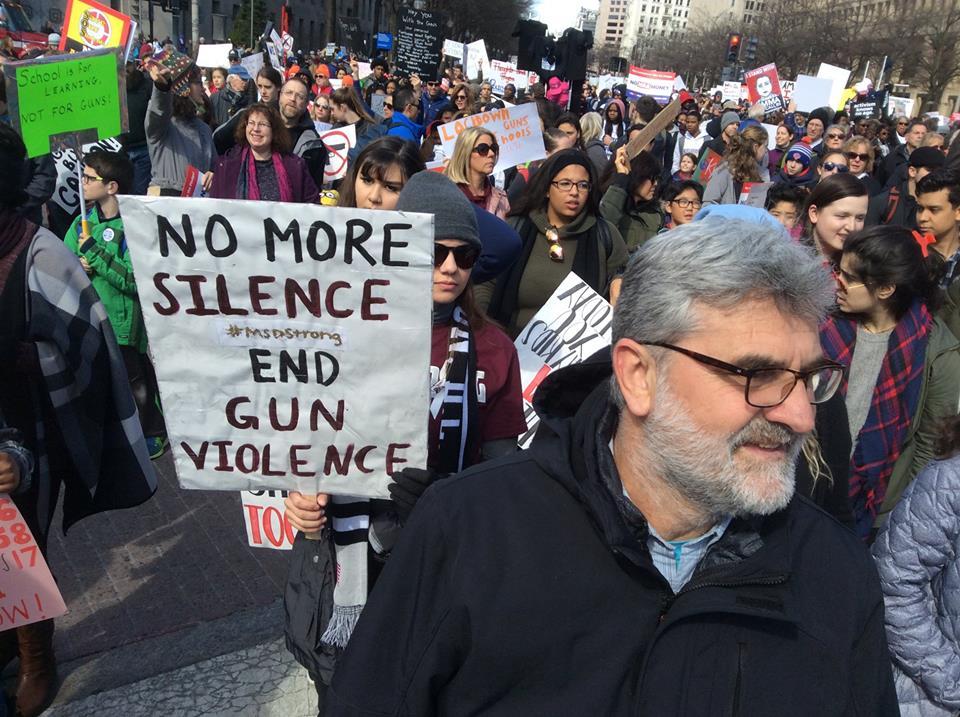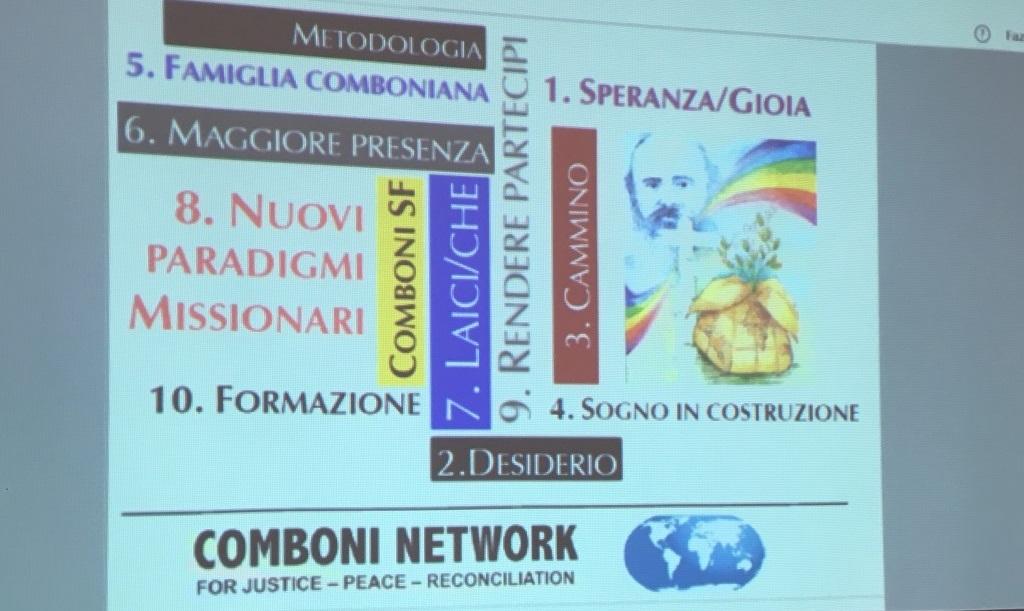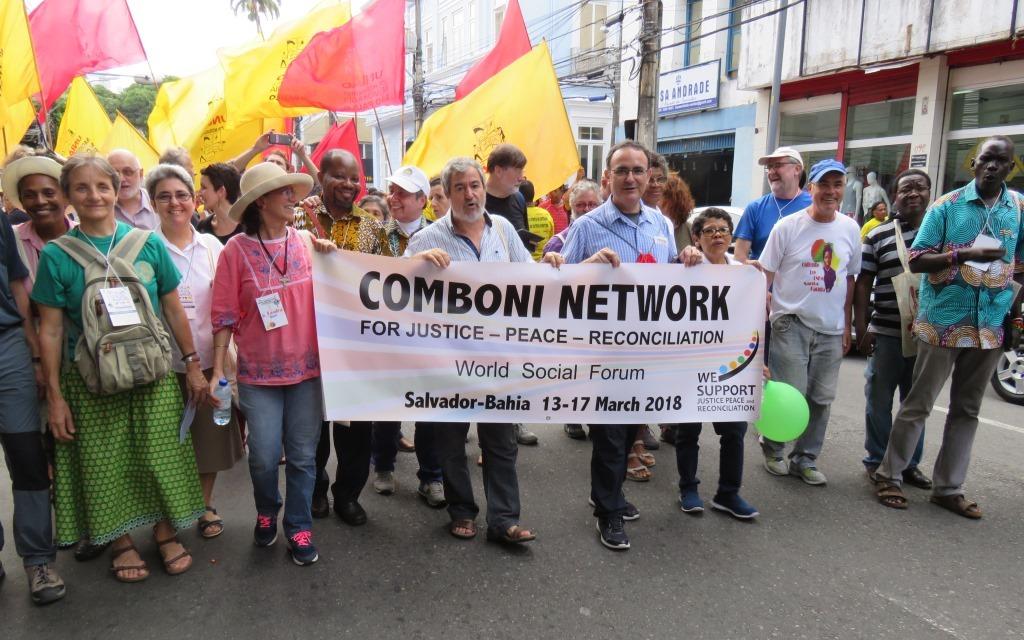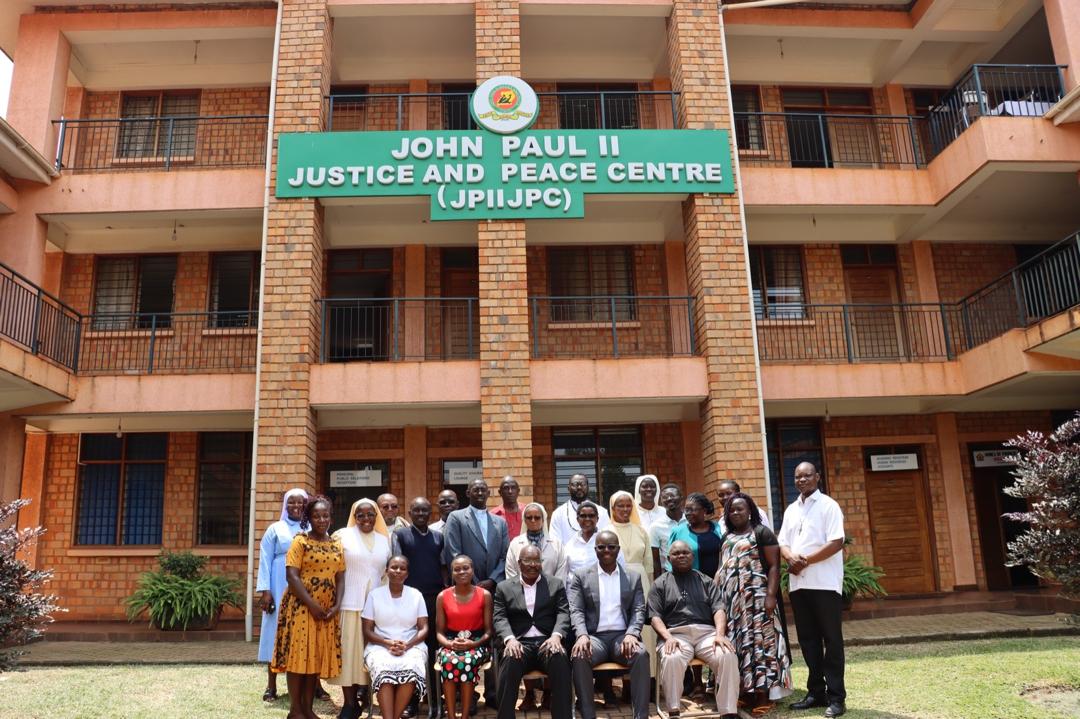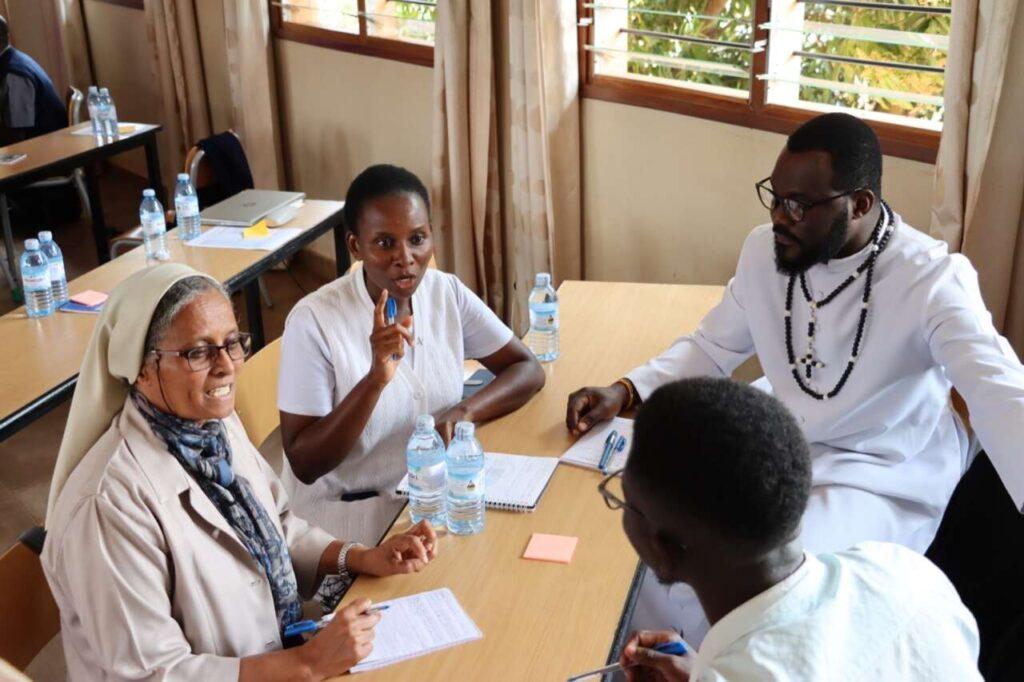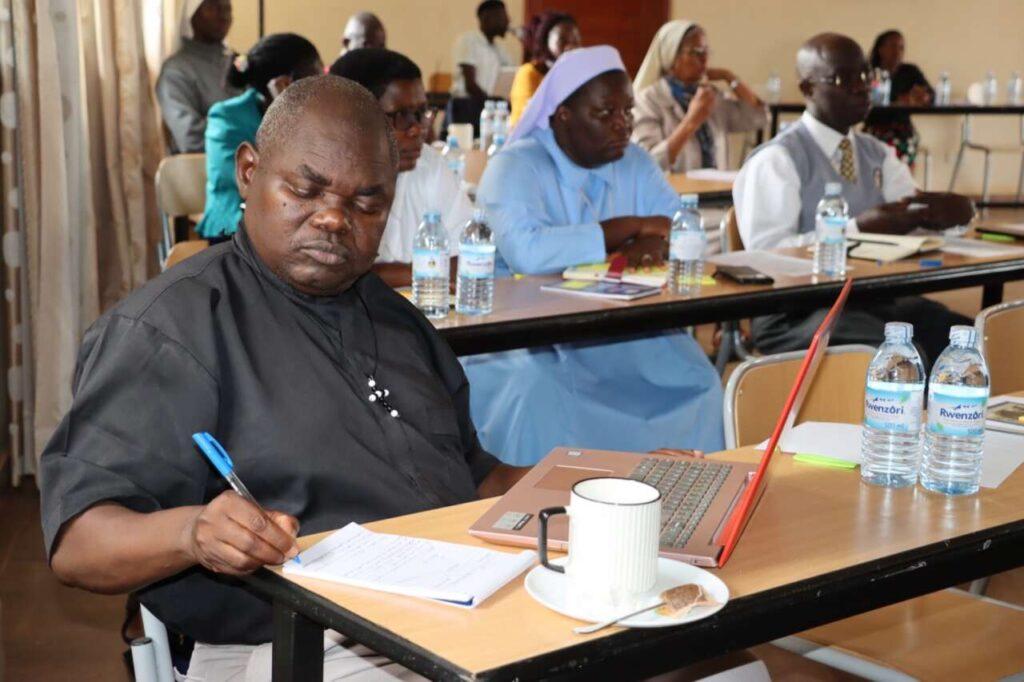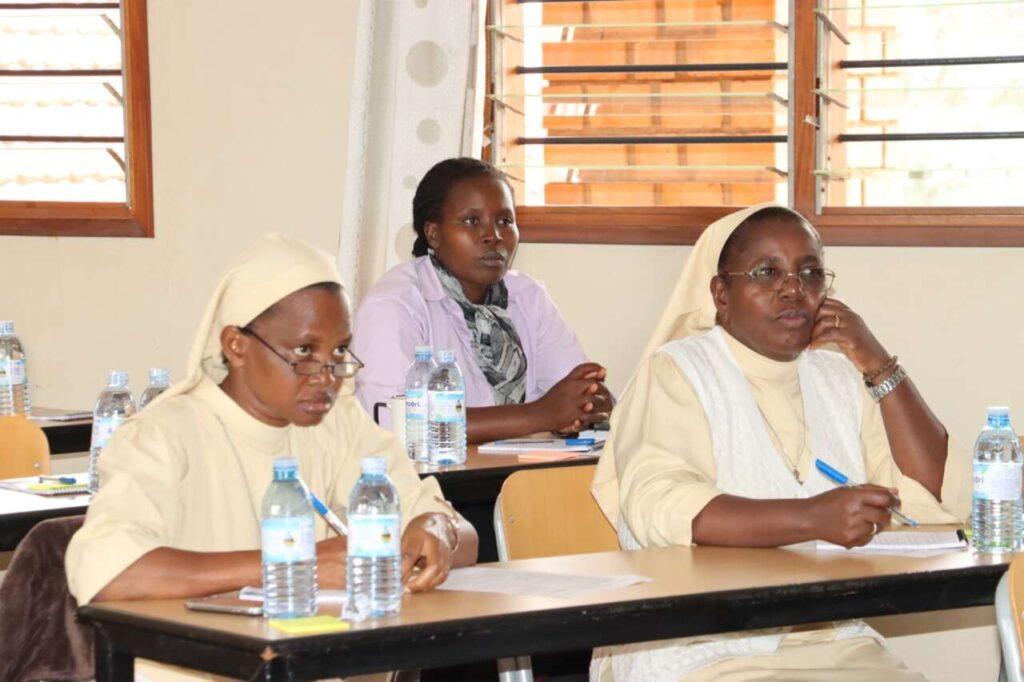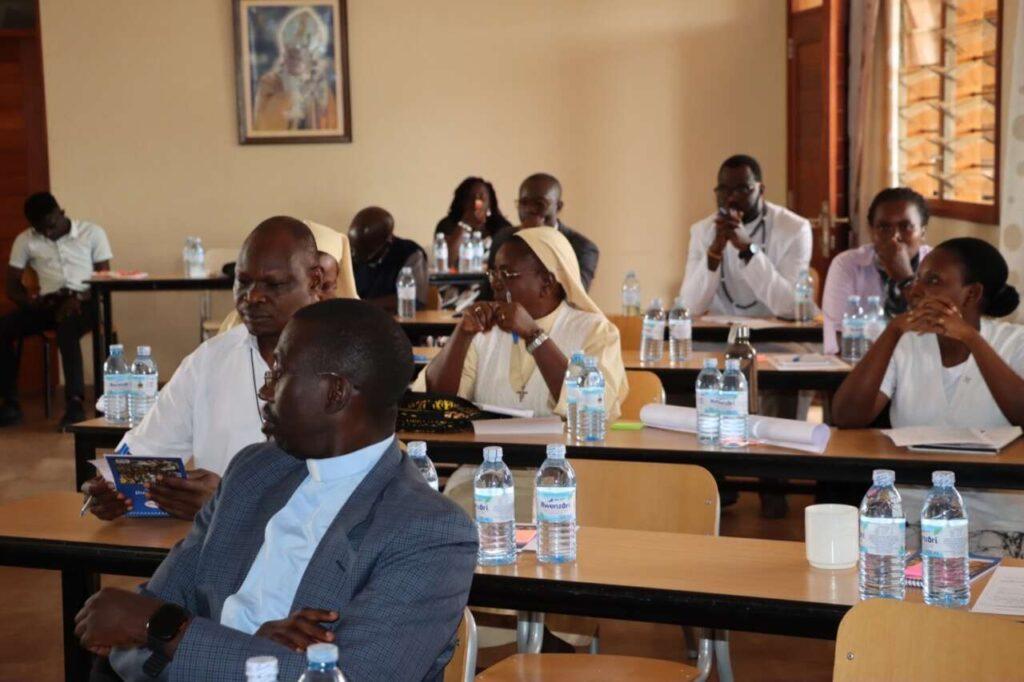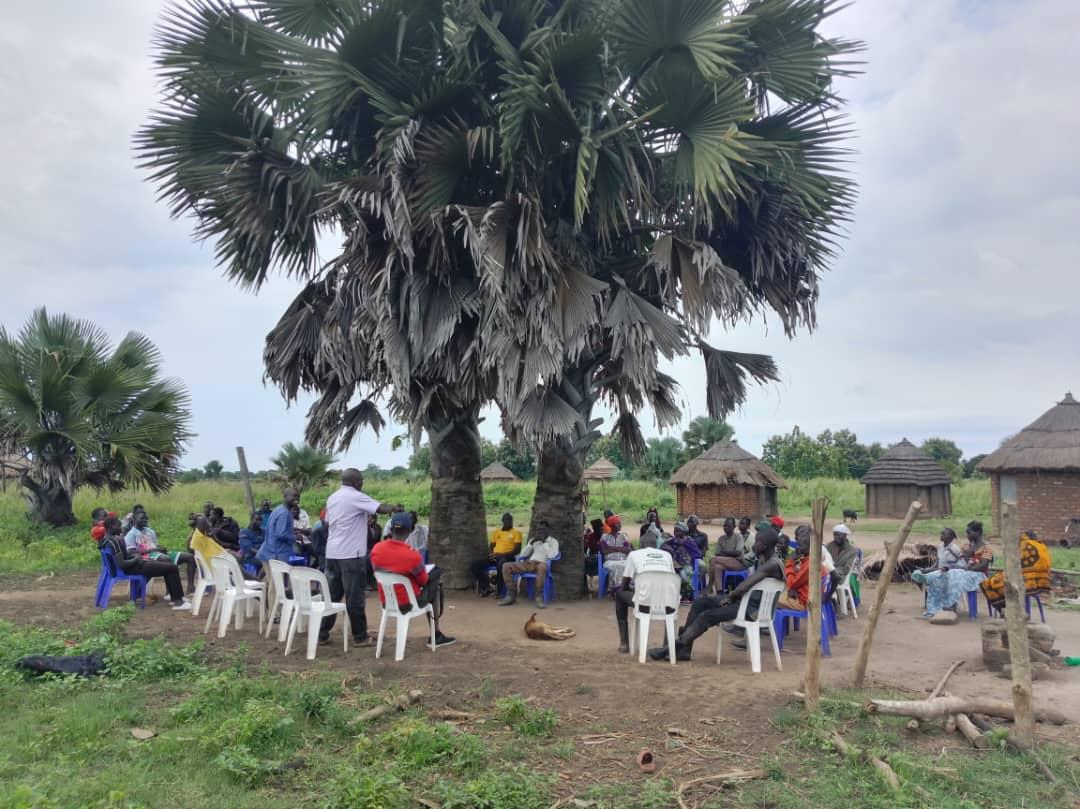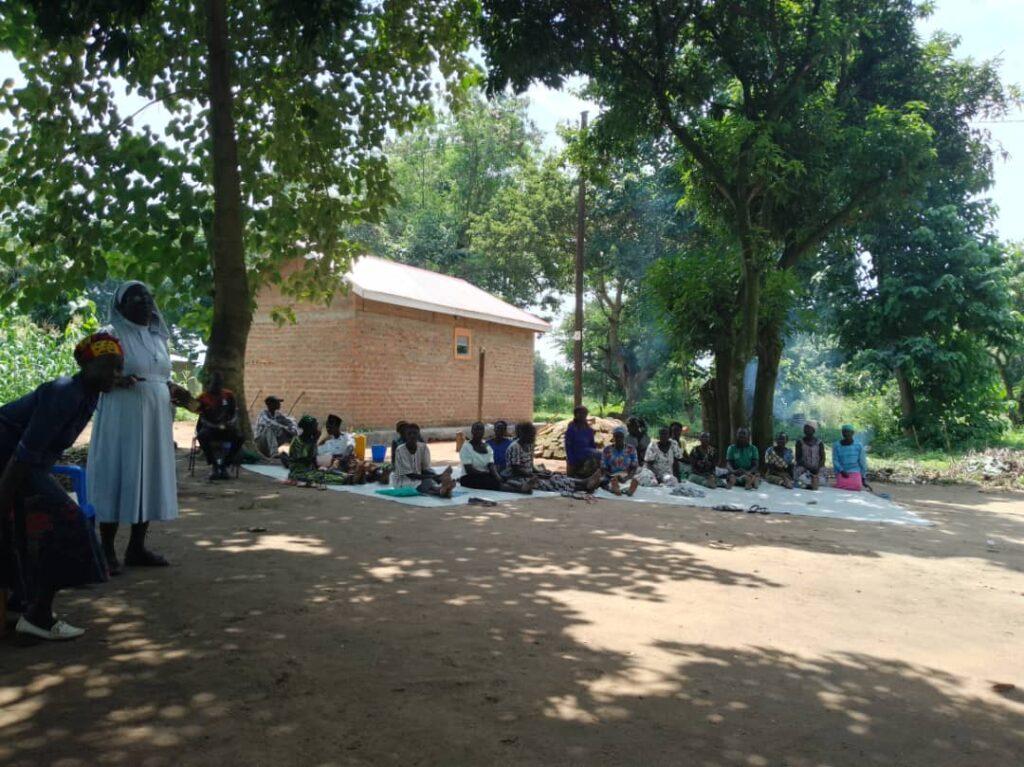Daniel Comboni
Missionários Combonianos
Área institucional
Outros links
Newsletter
Tuesday, October 8, 2024
As Executive Secretary of the Africa Europe Faith and Justice Network (AEFJN), it gives me great pleasure to introduce this report on the AEFJN Uganda Antenna-Members and Partners Workshop, held in Kampala and followed by a field visit to Adjumani District. This report reflects not only the strategic priorities of our network but also the commitment of our members and partners to promoting justice and peace through collaboration, advocacy, and concrete action. [In the picture: Elvis Ng’andwe, AEFJN Execcutive Secretary]
The workshop and field visit represented significant milestones in AEFJN’s journey, particularly with the formal establishment of the AEFJN Antenna in Uganda, coordinated by the John Paul II Justice and Peace Centre (JPIIJPC). The importance of this moment cannot be overstated, as it signals a strengthened commitment to addressing critical issues like land rights, agroecology, and economic justice for marginalized communities, especially in regions that continue to face the compounded challenges of land conflicts, food insecurity, and environmental degradation.
This report encapsulates the dedication of a diverse group of religious congregations, civil society organizations, and local communities working together to champion the causes of those who are often overlooked. The spirit of collaboration that emerged from the workshop and field visit is a testament to what can be achieved when we unite in our pursuit of justice. The resolutions and outcomes outlined here provide a clear roadmap for the Antenna’s work in the coming years, ensuring that our efforts remain focused, inclusive, and impactful.
As we move forward, I extend my deepest gratitude to all the participants and partners who contributed to the success of this initiative. I look forward to continued collaboration and to seeing the fruits of our shared commitment to a just and sustainable future for all.
Introduction
This report presents a summary of the key activities and outcomes from the AEFJN Members and Partners Consultative Workshop held on August 6, 2024, in Kampala, Uganda, followed by a field visit to Adjumani District from August 7-9, 2024. The workshop brought together a diverse group of stakeholders, including civil society partners and AEFJN member congregations in Uganda, to discuss collaborative efforts. A central topic was the establishment of an AEFJN Antenna in Uganda, coordinated by the John Paul II Justice and Peace Centre (JPIIJPC). The field visit to Adjumani focused on assessing the “Our Land is Our Life” project, which addresses land justice and agroecology, reinforcing the partnership’s commitment to supporting marginalized communities in Uganda.
Workshop Activities and Outcomes
The workshop on August 6, 2024, brought together a wide range of stakeholders, including AEFJN members and civil society partners. Representatives from various organizations attended, such as Daughters of Joseph and Mary, Medical Mission Sisters, Association of Religious in Uganda, Little Sisters of St. Francis, University of Kasubi, Comboni Missionary Sisters, Caritas Kampala, Caritas Uganda, Spiritans, Missionaries of Africa, Missionary Sisters of Our Lady of Africa and Comboni Missionaries. All participants shared a commitment to promoting justice and peace through collective action.
The workshop began with a Zoom address by AEFJN President, Br. Alberto, who emphasized the importance of collaboration between African and European religious communities to advance advocacy for peace and justice in Africa. This was followed by an overview of AEFJN’s mission and vision by the Executive Secretary, who highlighted the network’s focus on trade justice, land rights, and environmental sustainability, particularly in Africa.
The Director of JPIIJPC outlined the Centre’s work in promoting justice and peace in Uganda, specifically in land rights advocacy, human trafficking prevention, and ecological sustainability. The Centre’s efforts in fostering dialogue between refugees and host communities were also emphasized as a key area aligned with AEFJN’s broader advocacy framework.
A primary focus of the workshop was the establishment of the AEFJN Antenna in Uganda. Participants discussed how the Antenna could serve as a coordinating body for advocacy, research, and training. Potential areas for collaboration were explored, with particular attention to agroecology, food security, and justice for marginalized populations, including refugees and rural communities in Uganda.
Resolutions from the Workshop
The workshop also called for adequate communication between AEFJN’s secretariat and its members in Uganda. Establishing clear communication channels was identified as crucial for effective coordination between AEFJN partners in Uganda and Europe. A virtual meeting was scheduled for August 29, 2024, to further discuss the implementation of the resolutions and finalize the Antenna’s structure and operating procedures.
Field Visit to Adjumani
Following the Kampala workshop, the AEFJN Executive Secretary and JPIIJPC staff conducted a field visit to Adjumani District from August 7-9, 2024. The purpose of the visit was to assess the “Our Land is Our Life” (OLOL) project, which focuses on land justice and indigenous food security through agroecology. This project is designed to address the challenges of land rights and food security faced by local and refugee communities in Adjumani.
During the visit, the team engaged with local communities in villages such as Kochoa, Sodogo, and the Maaji 3 refugee settlement. These meetings provided insights into the challenges related to land access, the impact of climate change on food production, and the need for sustainable agricultural practices to improve livelihoods in the region.
A key outcome of the visit was the formation of four farmer groups: Alera Farmers Association, Amatura Farmers Group, Vukootu Farmers Association, and Bishop Caesar Asili Group. These groups committed to cultivating 19 acres of land using agroecological methods, focusing on indigenous crops like maize, rice, millet, simsim, and soybeans. Their success will serve as a model for expanding agroecological initiatives to other parts of Uganda.
The team also assessed the infrastructure and support needed to implement the project successfully. Training in sustainable farming techniques and ensuring access to resources such as seeds, tools, and financial assistance were identified as critical components for the project’s success.
Conclusion
The AEFJN Uganda Antenna-Members and partners Workshop and the Adjumani field visit marked significant steps in strengthening collaboration between AEFJN, JPIIJPC, and local communities in Uganda. The establishment of the AEFJN Antenna, coordinated by JPIIJPC, lays the groundwork for future advocacy focused on land rights, agroecology, and food security.
The workshop’s resolutions and the progress made during the field visit reflect a shared commitment to addressing the injustices faced by marginalized communities in Uganda. Engaging with local farmers in Adjumani showed that sustainable agriculture and food sovereignty can be reached when communities are given the right tools and support. As the AEFJN Antenna in Uganda continues to grow, the goal will be to build on these efforts and make sure the needs of vulnerable groups are included in wider advocacy efforts.
Elvis Ng’andwe
Executive Secretary, AEFJN

